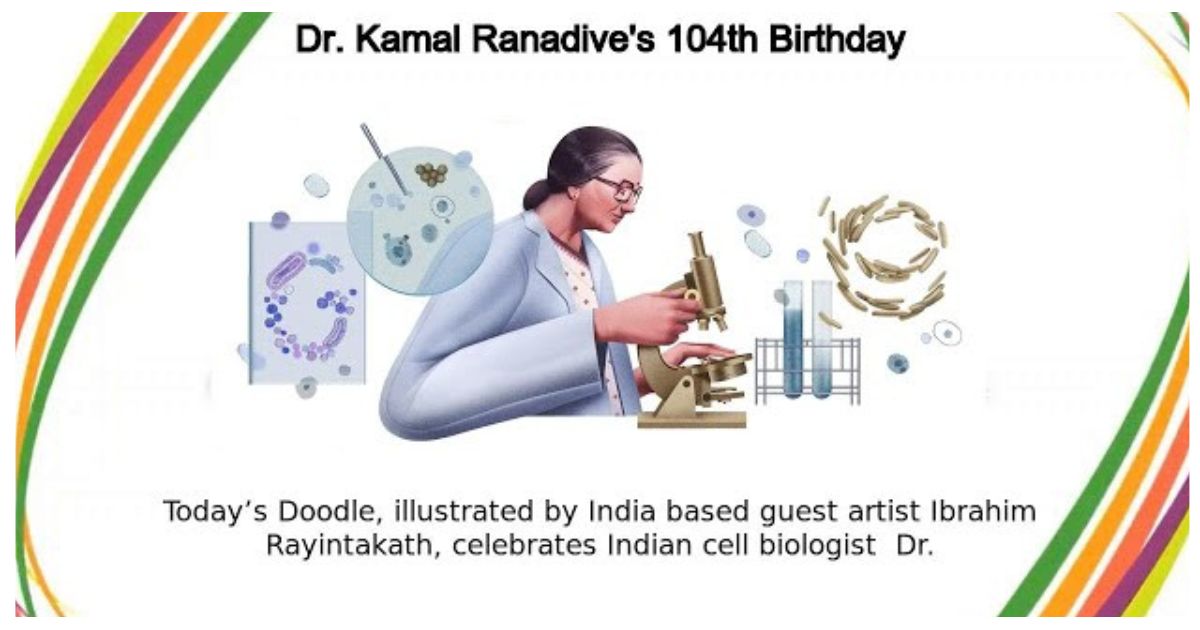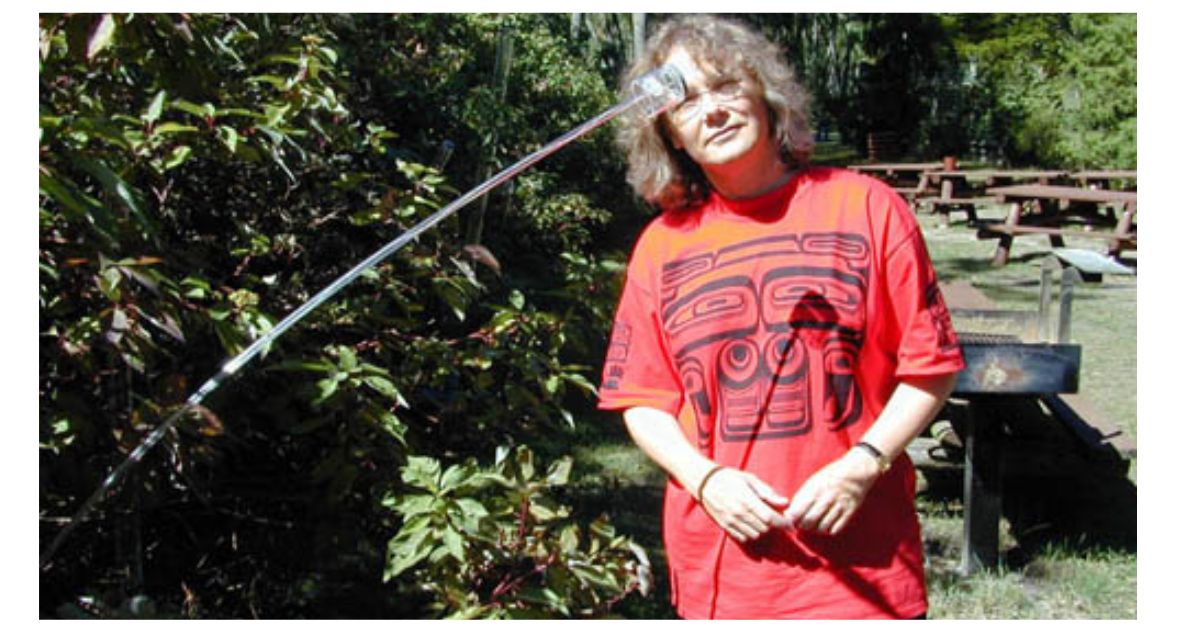Early Life and Education
Dr. Kamal Ranadive was born in Pune, India, in 1917. Growing up in a family that valued education and intellectual growth, she was encouraged by her father, a professor of biology, to pursue a career in science. Her father’s influence was instrumental, sparking her interest in biological sciences from an early age. She completed her undergraduate studies in biology and soon after pursued a master’s degree, followed by a doctoral degree in cytology from the University of Mumbai. Her academic excellence laid the foundation for her future achievements in medical research.
Pioneering Cancer Research in India
Dr. Ranadive is best known for her pioneering research in cancer biology, specifically in understanding the relationship between cancer and genetics. In an era when cancer research was still in its infancy in India, her contributions were groundbreaking. Dr. Ranadive explored the genetic factors that contribute to cancer, a relatively unexplored area at the time. Her studies revealed the role of heredity in cancer development, providing insight that helped pave the way for early detection and prevention.
Establishing the Indian Cancer Research Centre
In the 1940s and 1950s, Dr. Ranadive joined the Indian Cancer Research Centre (ICRC), where she played a pivotal role. Eventually, she became the Director of the ICRC, using her leadership to build a thriving environment for cancer research in India. Under her guidance, the ICRC became a leading center for cancer studies, advancing treatment and prevention methods. Her work positioned India as a key player in global cancer research, inspiring young scientists to join the field and make a difference.
Dr. Ranadive’s Research on Breast Cancer
Among her many contributions, Dr. Ranadive’s research on breast cancer is particularly notable. She led some of the earliest studies in India focusing on the causes and genetic factors associated with breast cancer, which affects millions of women worldwide. Her work helped identify correlations between hormonal changes and the likelihood of developing breast cancer. These findings contributed to a deeper understanding of the disease and advanced the early detection and treatment of breast cancer in India and globally.
Pioneering Work in Tissue Culture and Immunology
Apart from cancer research, Dr. Ranadive was a pioneer in the field of tissue culture and immunology. Tissue culture was a groundbreaking technique in her time, and Dr. Ranadive became one of the first Indian scientists to use it extensively. Her work advanced immunology and laid a foundation for testing anti-cancer drugs, improving cancer treatment methods. This research greatly impacted how diseases were studied and treated in India, establishing Dr. Ranadive as a visionary in science.
Impact on Leprosy Research
Dr. Ranadive’s research also extended to leprosy, a disease that had been stigmatized and neglected for decades. Her studies included analyzing bacterial strains to identify links to other diseases, enhancing the understanding of leprosy’s bacterial properties. By applying her research to leprosy, she helped destigmatize the disease and encouraged scientific inquiry into neglected diseases affecting India’s most vulnerable populations. This research played a role in developing effective treatments and improving the quality of life for leprosy patients.
Founding of the Indian Women Scientists’ Association
In 1973, Dr. Ranadive, recognizing the need for a supportive network for women in science, co-founded the Indian Women Scientists’ Association (IWSA). This organization aimed to promote and support women in scientific fields, an area traditionally dominated by men. The IWSA offered mentorship, resources, and community support to aspiring female scientists across India. Dr. Ranadive’s efforts with the IWSA were instrumental in inspiring young women to pursue careers in science, fostering gender diversity in the field, and breaking down gender barriers.
Contributions to Public Health and Social Awareness
Dr. Ranadive was passionate about making healthcare accessible to all, especially marginalized and rural communities. She worked tirelessly to raise awareness about cancer, leprosy, and other diseases, emphasizing the importance of early diagnosis and treatment. Her public health campaigns were instrumental in dispelling myths and reducing the social stigma around these diseases. Through her outreach, Dr. Ranadive educated countless individuals on disease prevention and the importance of medical intervention, empowering communities to take charge of their health.
Mentorship and Legacy in Science
As a mentor, Dr. Ranadive inspired countless young researchers and students, many of whom went on to become prominent scientists themselves. Her mentorship extended beyond technical knowledge; she also emphasized ethics, perseverance, and the importance of societal impact in scientific endeavors. Her legacy as a teacher and mentor remains influential, with many of her mentees continuing to contribute to medical and scientific advancements.
Honors and Recognition
Challenges and Overcoming Adversity
Dr. Ranadive’s journey was not without challenges. Being a woman in a male-dominated field meant facing societal and professional obstacles. Despite these challenges, she remained steadfast in her dedication to science and healthcare. Her perseverance in the face of adversity serves as an inspiration to many, demonstrating that determination and passion can overcome societal limitations.
Personal Philosophy and Dedication to Service
Dr. Ranadive believed that science should serve humanity, and this belief shaped her career and life choices. Her work extended beyond laboratories and lecture halls; she was deeply involved in initiatives aimed at improving lives and health outcomes for the underserved. Her personal philosophy of service guided her commitment to research that would benefit society, particularly those in need.
Dr. Ranadive’s Lasting Impact on Cancer Research
The advancements in cancer research that emerged from Dr. Ranadive’s work continue to shape modern medicine. The knowledge and techniques she developed in cancer genetics, immunology, and tissue culture remain relevant and are still applied in medical research today. Her pioneering work on cancer genetics laid the groundwork for targeted therapies that are now saving lives around the world.
Inspiring Future Generations of Scientists
Conclusion
Dr. Kamal Ranadive’s life and work exemplify the power of scientific dedication and social commitment. Her contributions to cancer research, public health, and women’s empowerment have left a lasting impact on both Indian and global communities. Dr. Ranadive’s legacy continues to inspire, proving that with passion and perseverance, one can create change that transcends generations.
FAQs
What were Dr. Kamal Ranadive’s main contributions to cancer research?
Dr. Ranadive’s research focused on the genetic factors influencing cancer, breast cancer studies, and the use of tissue culture in cancer research.
How did Dr. Kamal Ranadive support women in science?
She co-founded the Indian Women Scientists’ Association to provide resources and a supportive network for women scientists in India.
Why is Dr. Ranadive’s work on leprosy significant?
Dr. Ranadive’s work on leprosy helped reduce the stigma surrounding the disease.
What awards did Dr. Kamal Ranadive receive for her contributions?
Dr. Ranadive was awarded the Padma Bhushan in 1982 in recognition of her impact on medical research.
What is dr. kamal ranadive lasting legacy?
Dr. Ranadive’s legacy includes advancements in cancer research, her role in founding the IWSA.











